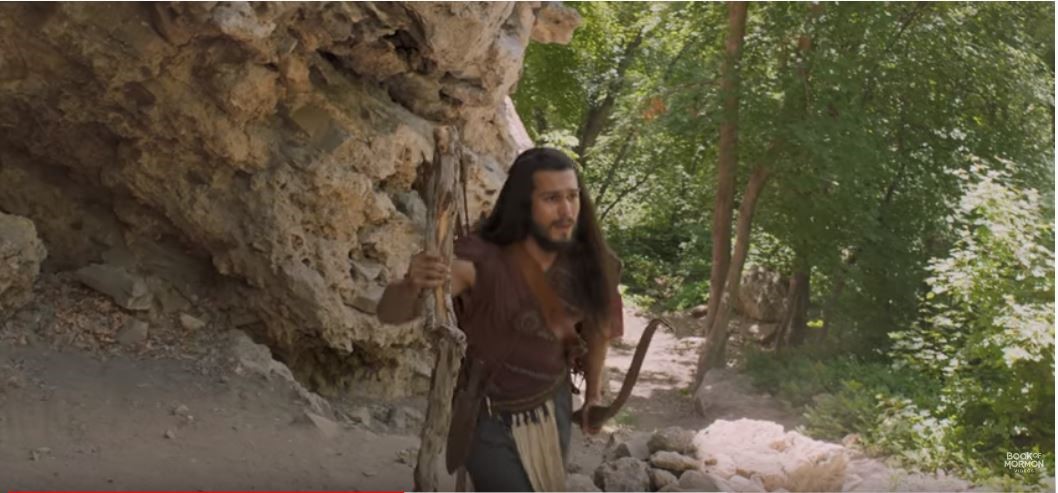To accompany your Come Follow Me study for April 15-21
In addition to your reading of Enos, Jarom, Omni, and Words of Mormon, you will enjoy watching the following Church-produced video depicting Enos’ experience and perhaps some of the following short videos from Scripture Central:
You will also enjoy looking at the following chapter from the Book of Mormon Institute Student Manual:
If you would like a Kahoot game related to this material which you could use for personal study or use with your family or your class, click here: https://create.kahoot.it/share/enos-jarom-omni-and-words-of-mormon/9e348da9-809c-4e8d-a9c1-f5b9ec7a3ffe . To use it with a group, after clicking on this link, you will need to log into Kahoot, creating a free account if you have not done so previously, then click on the blue “Start” button. Some of the Kahoot questions may presuppose that the player has read through the suggested answers to the following Points to Ponder and at least has browsed the Institute student manual as well.
Points to Ponder in Enos, Jarom, Omni, and Words of Mormon
1. About how old do you think Enos was when he had his classic spiritual experience? Why do you think so?
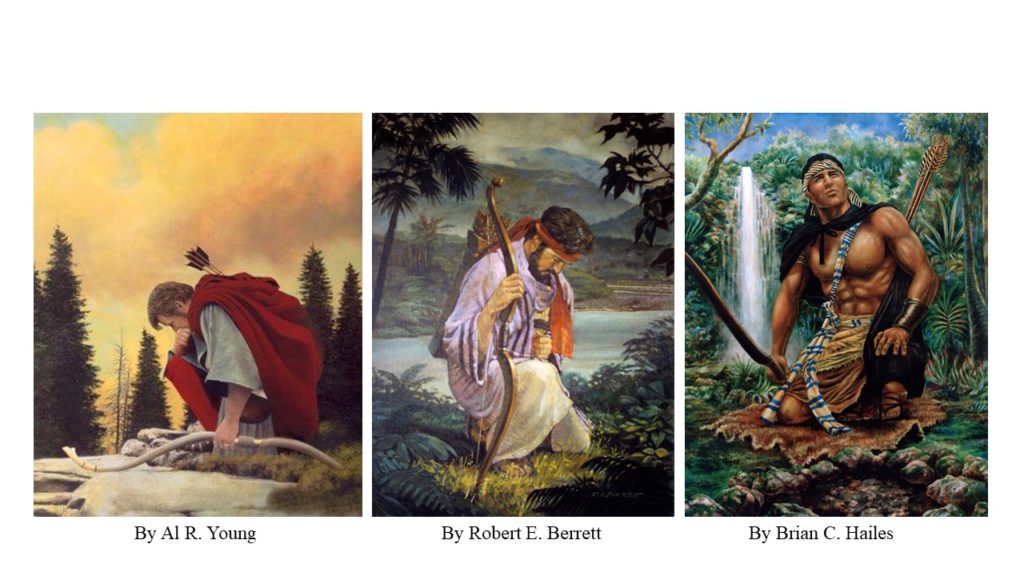
2. Put the following things in the order of importance you think they would have had in Enos’ life prior to his prayer if he had lived in our time but were otherwise unchanged:
a. scriptures
b. family home evenings
c. social media
d. video games
e. girls
f. sports
g. education
h. cars
i. hunting
j. politics
3. On a scale of 1-10, with 10 being the highest, how well would you guess Enos got along with his father before his experience with the Lord? Why do you think so?
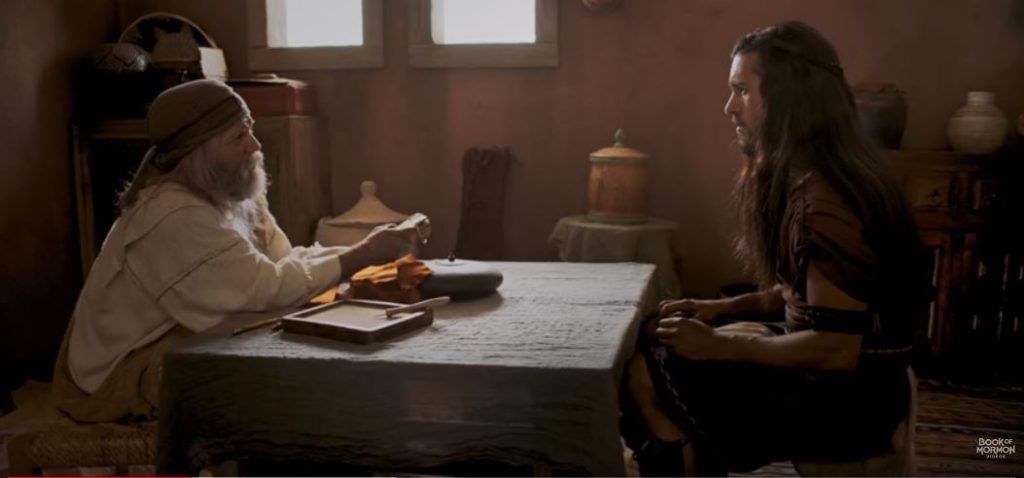
4. Why do you suppose Enos suddenly stopped hunting and started praying?
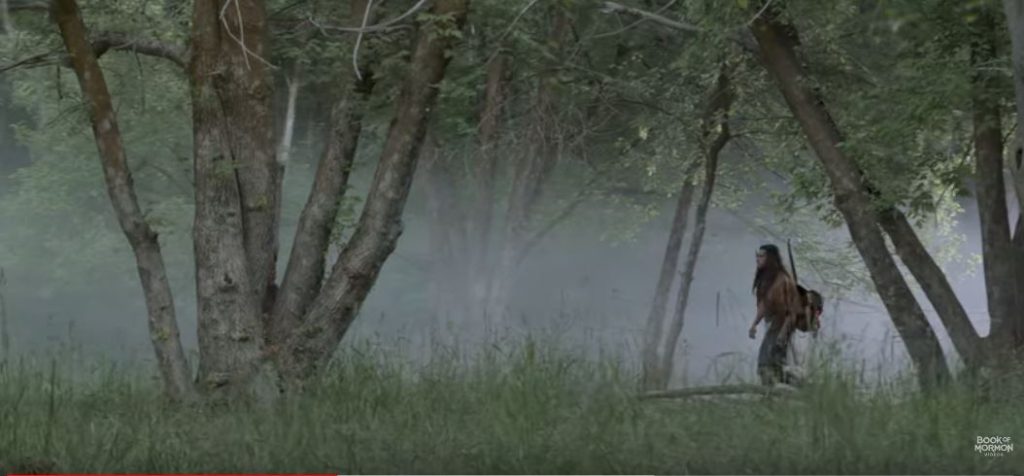
5. What do you feel is the significance of the word “wrestle” which Enos uses to describe his prayer? Who else might Enos have known about who “wrestled” with God in prayer? What similarities do you see in the two experiences?
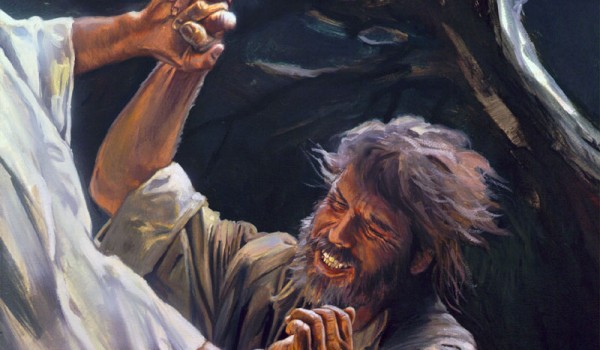
6. What do you suppose would have happened if Enos had stopped praying at sundown? Why did the Lord wait so long to answer him? Does the Lord really expect us to pray that long? Would something equivalent to Enos’ experience likely occur if we did?
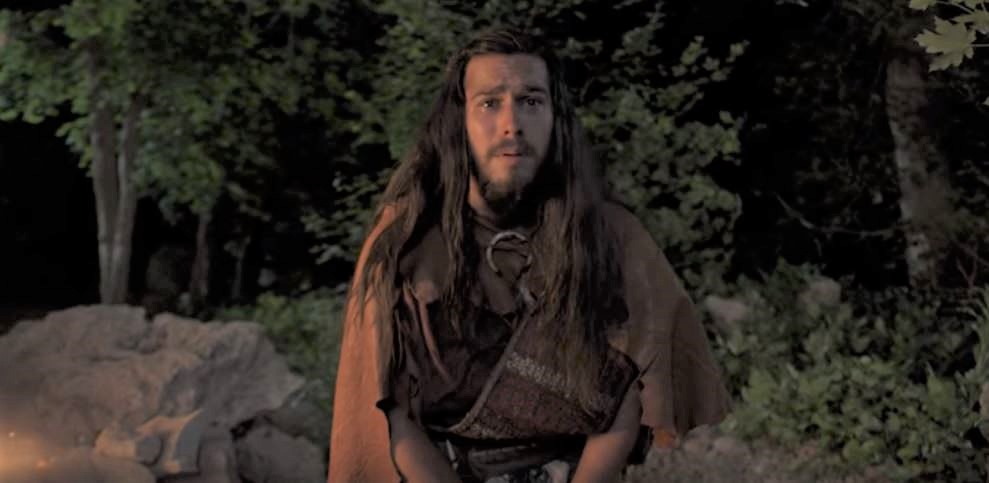
7. Rather than pray for success in his hunt, we find Enos praying for forgiveness. Why? What had he done? Had he really been that bad?
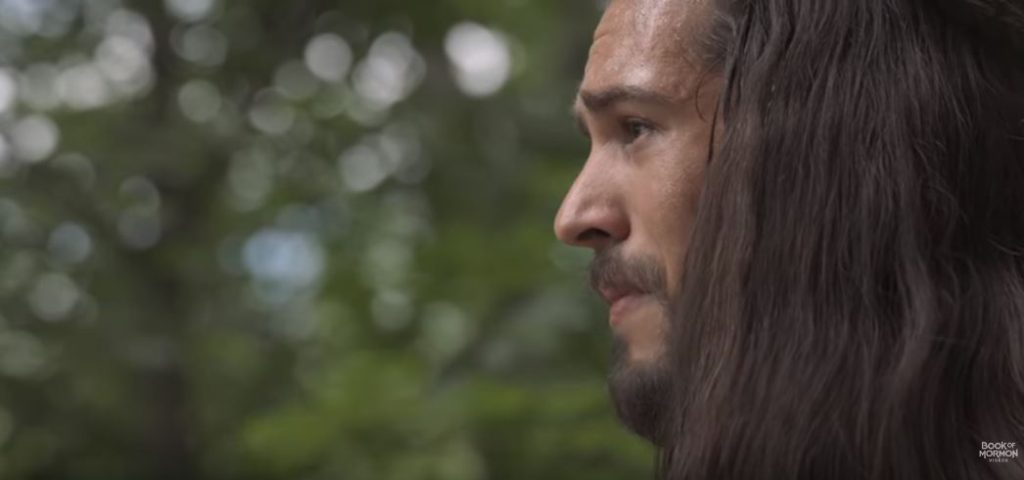
8. Can you identify the three stages of spiritual progress through which Enos passed, all in the same evening? What would be the equivalent in our lives?
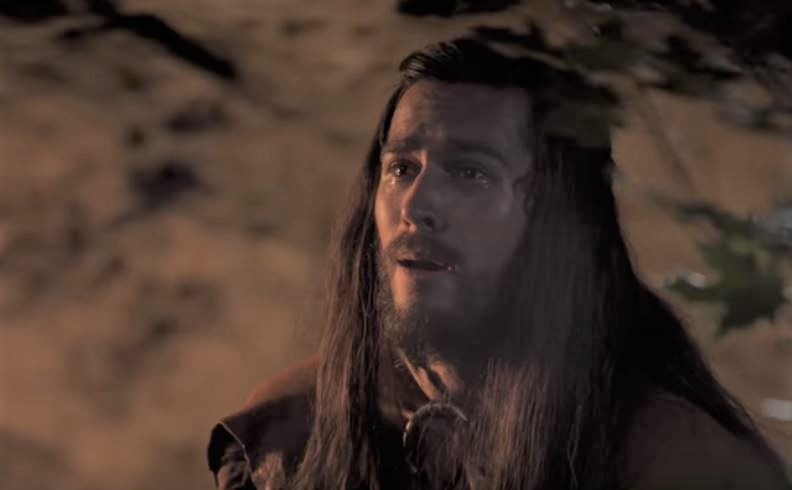
9. How should we feel about Enos’ mention of horses in 1:21, in view of the fact that non-Latter-day Saint scholars are generally agreed that there were not horses in the Americas until the Spanish brought them?
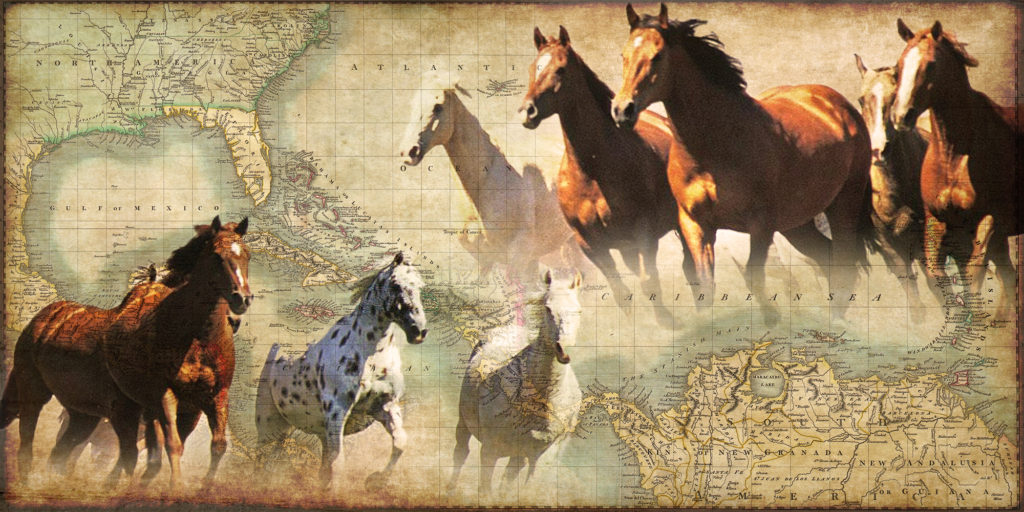
10. Why did the Nephite prophets of Enos’ day use scare tactics on their people? Wouldn’t it be better to serve the Lord out of love than out of fear? (v. 23)
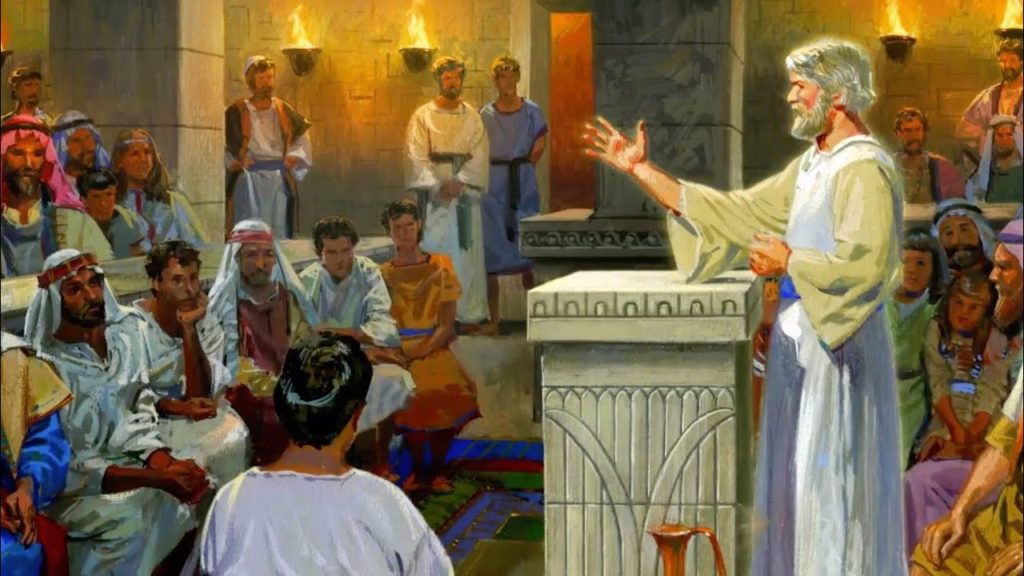
11. Mormon often said, “And thus we see ….” before summarizing a gospel principle that he saw in a Book of Mormon story. We can also play that game. What are the main “and thus we see” statements you could compose for the Book of Enos?
12. Now let’s try something similar with the Book of Jarom. If your publisher required you to cut out all of Jarom except for two verses, which two verses would you keep? Why?
12a. How would you respond to the following assertion? “There is evidence in the book of Jarom of the beginning of a spiritual decline among the Nephites. Unlike Nephi (1 Nephi 6:1), who declined to clutter the plates with his genealogy, Jarom seems to say (Jarom 1:1) that passing on their genealogy was his principle reason for writing. And unlike Nephi, who made a second set of plates specifically to record his revelations and preaching, Jarom says ‘I shall not write the things of my prophesying, nor of my revelations.'”
13. Jarom and Omni cover almost 300 years in 4 ½ pages, or about 67 years per page. Mosiah through 3 Nephi use 320 pages to cover only 165 years, or about ½ year per page. Why the difference?
14. In your own words, what were the two reasons the Nephites had military success against the Lamanites, according to this week’s reading?
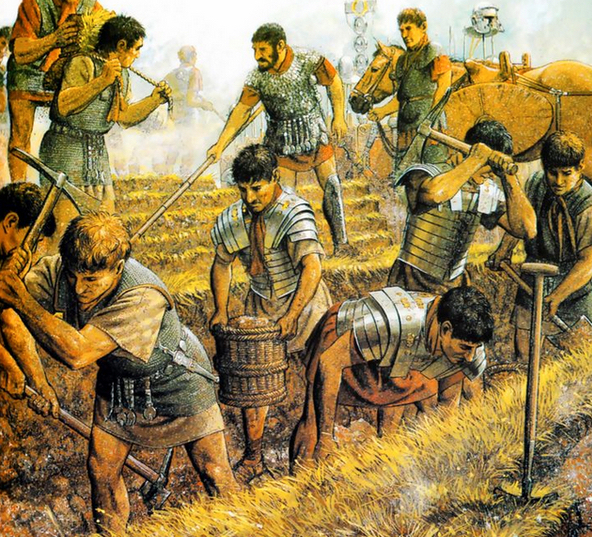
15. What does archaeology reveal about warfare during early Nephite times, and how well does it correspond to the picture Jarom paints for us?
16. If you didn’t read Omni, you’d be totally lost when you picked up Mosiah. What changes have occurred in each of the following areas?
a. Geography
b. Composition of the Nephite nation
c. Religious conditions
d. Political and social conditions
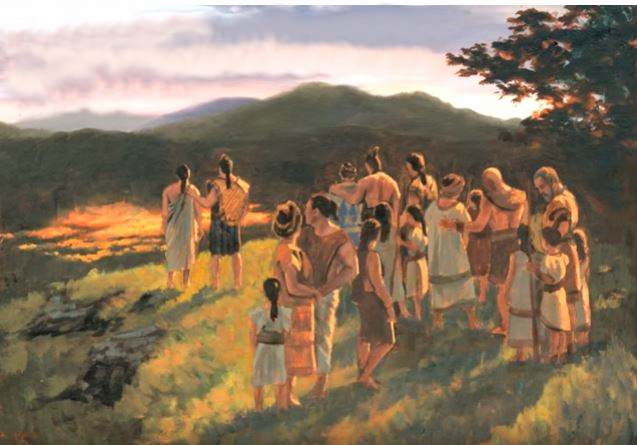
17. What passage in Omni would you guess that Elder Marion D. Hanks thought was particularly funny?
18. What evidence can you point to that the book of Omni was written during a time of general spiritual decline among the Nephites?
19. What is Mormon doing between the books of Omni and Mosiah? Is he lost? What does Martin Harris have to do with the answer?
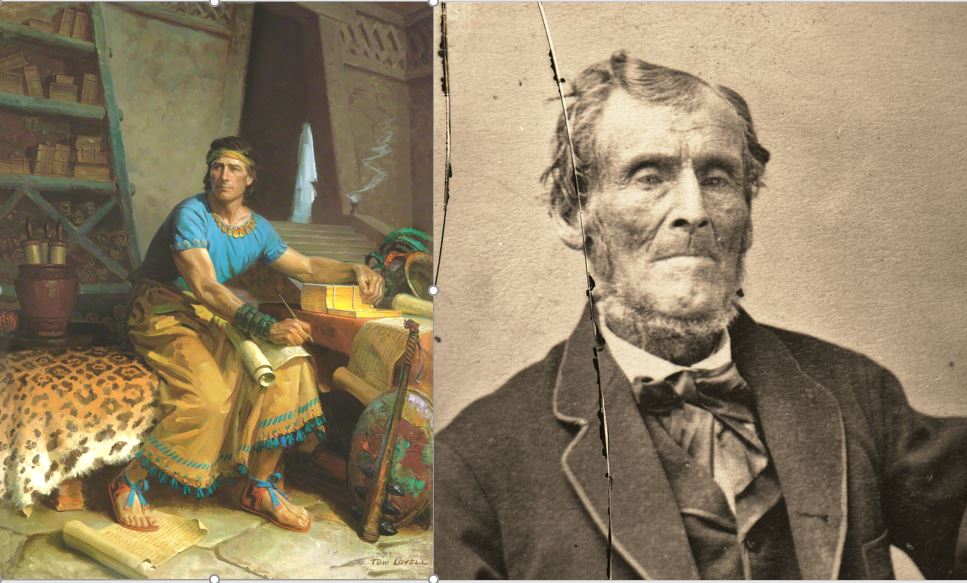
Possible Answers to Points to Ponder in Enos, Jarom, Omni, and Words of Mormon
1. About how old do you think Enos was when he had his classic spiritual experience? Why do you think so?
We can’t prove it, but I have pictured him as about 16-17—a fairly typical older teenager. The Church’s video segment depicting Enos’ experience, however, shows him as a young married man. Some day we’ll know for sure.
2. Put the following things in the order of importance you think they would have had in Enos’ life prior to his prayer if he had lived in our time but were otherwise unchanged:
- scriptures
- family home evenings
- social media
- video games
- girls
- sports
- education
- cars
- hunting
- politics
My own picture of him is that it might have been something like the following:
- girls
- sports
- social media
- video games
- cars
- hunting
- education
- family home evenings
- scriptures
- politics
But whatever different list you made has as good a chance of being right as does mine.
3. On a scale of 1-10, with 10 being the highest, how well would you guess Enos got along with his father before his experience with the Lord? Why do you think so?
I’d guess he’d have been about a 7. I think he likely respected his father and got along well enough with him but may have considered him a bit fanatical and preachy with regard to religion.
4. Why do you suppose Enos suddenly stopped hunting and started praying?
Who knows? Maybe the animals were scarce that day. For whatever reason Enos started meditating and “the words which I had often heard my father speak … sunk deep into my heart. And my soul hungered.” He came to realize he needed to get right with the Lord even more than he needed to bag some game. But it’s quite certain that if his dad, the prophet Jacob, hadn’t been so persistent in teaching his family, there would have been no words available which Enos could recall and ponder at this critical time in his life.
5. What do you feel is the significance of the word “wrestle” which Enos uses to describe his prayer? Who else might Enos have known about who “wrestled” with God in prayer? What similarities do you see in the two experiences?
The Old Testament Jacob, after whom Enos’ father may have been named, also “wrestled” with the Lord. (Genesis 32:24.) Both spiritual struggles lasted well into the night. See https://knowhy.bookofmormoncentral.org/knowhy/how-did-enos-liken-the-scriptures-to-his-own-life for other interesting parallels between the two experiences.
6. What do you suppose would have happened if Enos had stopped praying at sundown? Why did the Lord wait so long to answer him? Does the Lord really expect us to pray that long? Would something equivalent to Enos’ experience likely occur if we did?
Enos felt “hungry” enough that he wasn’t willing to quit praying until he got an answer. If he had stopped at sundown, presumably he would have gone home empty-handed. Normally we aren’t expected to pray that long, but there may be occasions in the lives of each of us when it would be helpful. There is no promise that every daylong prayer will yield the same results, but Enos is not the only one to whom it has happened. It could be compared to having your car stuck in the mud. It may take great exertion to get it unstuck and moving again, but once it’s on the pavement, a comparatively small amount of pushing will keep it going.
7. Rather than pray for success in his hunt, we find Enos praying for forgiveness. Why? What had he done? Had he really been that bad?
He had likely not been guilty of any gross sins, but as he drew closer to the Lord, he became more sensitive to the seriousness of the little sins of which he was guilty—much like Joseph Smith as a youth felt condemned for his imperfections, small as they were by worldly standards.
8. Can you identify the three stages of spiritual progress through which Enos passed, all in the same evening? What would be the equivalent in our lives?
First Enos prayed for himself, then for the Nephites, and finally for his enemies, the Lamanites. We appropriately start out praying for ourselves, but eventually need to progress to the point that we are interested in the welfare of our friends and family, and eventually of those who are not our friends but have mistreated us.
9. How should we feel about Enos’ mention of horses in 1:21, in view of the fact that non-Latter-day Saint scholars are generally agreed that there were not horses in the Americas until the Spanish brought them?
See https://knowhy.bookofmormoncentral.org/content/why-are-horses-mentioned-in-the-book-of-mormon for a great discussion of this subject.
10. Why did the Nephite prophets of Enos’ day use scare tactics on their people? Wouldn’t it be better to serve the Lord out of love than out of fear? (v. 23)
Sure, it would be better to serve out of love than fear, but it’s better to serve and obey out of fear than not at all. As Enos said, there was nothing else that would work other than exceedingly harsh and threatening preaching.
11. Mormon often said, “And thus we see ….” before summarizing a gospel principle that he saw in a Book of Mormon story. We can also play that game. What are the main “and thus we see” statements you could compose for the Book of Enos?
How about the following, for starters:
V. 1: Righteous parents teach their children persistently.
V. 3: Sometimes when we think our words aren’t sinking in at all, they are being stored as planted seeds to bear fruit later.
V. 2 and 5: It may take great spiritual effort to achieve great spiritual blessings.
V. 10: Revelation comes through the mind, not the ears.
V. 4, 9, and 11: The nearer we get to the Lord, the more our capacity increases to love those other than ourselves, including even our enemies.
V. 19: Those who become truly converted desire to share the good news with others.
V. 23: Even a hard-hearted people can be helped by sufficiently direct preaching.
V. 27: It is possible even in this life to have an assurance of one’s future exaltation.
12. Now let’s try something similar with the Book of Jarom. If your publisher required you to cut out all of Jarom except for two verses, which two verses would you keep? Why?
Your choice. I might pick v. 4, which assures us that those who are not stiffnecked and have faith can have communion with the Holy Spirit and even have many revelations and v. 9, which emphasizes again that if we keep the commandments, we will prosper in the land.
12a. How would you respond to the following assertion? “There is evidence in the book of Jarom of the beginning of a spiritual decline among the Nephites. Unlike Nephi (1 Nephi 6:1), who declined to clutter the plates with his genealogy, Jarom seems to say (Jarom 1:1) that passing on their genealogy was his principle reason for writing. And unlike Nephi, who made a second set of plates specifically to record his revelations and preaching, Jarom says ‘I shall not write the things of my prophesying, nor of my revelations.'”
By the time we get to the book of Omni, there is indisputably a marked spiritual decline, and it may well have started in Jarom’s day. But it cannot be proved by the previously quoted “evidence.” Jarom recorded the genealogy of his immediate family, as did Nephi. What Nephi saw no need to include was the genealogy of his ancestors, inasmuch it was already contained on the brass plates. For a similar reason, Jarom declined to include details of his personal revelations, inasmuch as they contained the same gospel truths as Nephi had already recorded. But Jarom makes clear that there was no lack of revelation among them: “There are many among us who have many revelations,” he testified. We might make a similar observation about revelation among the leaders of The Church of Jesus Christ of Latter-day Saints. Seldom do they specifically announce that the Lord has revealed something new to them. As Wilford Woodruff once explained, while Joseph Smith said “Thus saith the Lord” frequently in establishing the foundation of the restored Church, his successors did not always feel it necessary to couch their teachings in the same language. And yet, he testified, they were led by the power of revelation every day of their lives. Most revelation is for administrative purposes or to confirm gospel truths to an individual, not to unfold brand new truths to the Church membership in general. Few Latter-day Saints would doubt that Russell M. Nelson, Thomas S. Monson, and Gordon B. Hinckley led the Church through the power of revelation, and yet the Doctrine and Covenants has remained largely constant in content since the days of Joseph Smith. Jarom evidently led his people according to a similar principle.
13. Jarom and Omni cover almost 300 years in 4 ½ pages, or about 67 years per page. Mosiah through 3 Nephi use 320 pages to cover only 165 years, or about ½ year per page. Why the difference?
Mosiah through 3 Nephi cover the time period immediately preceding and including the coming of Christ, with circumstances somewhat similar to those we experience today as we prepare for His Second Coming. Mormon obviously knew that their experiences would help us more than the history of earlier generations, whose situation was more different from our own.
14. List the two different reasons Jarom gave for the Nephites’ military success against the Lamanites.
V. 7: Their leaders were men of faith who taught the people the ways of the Lord.
V. 7-8: They coupled their faith with works and fortified their cities and prepared weapons of war of every kind.
15. What does archaeology reveal about warfare during early Nephite times, and how well does it correspond to the picture Jarom paints for us?
See https://archive.bookofmormoncentral.org/content/knowhy-328-what-does-archaeology-reveal-about-warfare-during-early-nephite-times-jarom-17-8 for some excellent material on the subject.
16. If you didn’t read Omni, you’d be totally lost when you picked up Mosiah. What changes have occurred in each of the following areas?
a. Geography: The Nephites are now in the land of Zarahemla, not Nephi, about 300 miles northwest of where they had been.
b. Composition of the Nephite nation: The Nephites are now primarily Mulekites rather than descendants of Lehi.
c. Religious conditions: The Nephites back in the land of Nephi have fallen into apostasy, and only Mosiah and a few righteous followers journey up to the land of Zarahemla to join with the Mulekites, who have lost all knowledge of their creator.
d. Political and social conditions: Nephites and Mulekites have merged, with Mosiah appointed their king. There are now more descended from the tribe of Judah than from Joseph among them.
17. What passage in Omni would you guess that Elder Marion D. Hanks thought was particularly funny?
It was verse 9. Chemish wins the prize for writing the least of any Book of Mormon author. He probably did not intend to be funny when he said that he saw the last that his brother Amaron wrote (which was so little it was probably also the first that he wrote) and says that Amaron procrastinated writing it until the day he turned the records over to Chemish, and “after this manner we keep the records”! It sounds like how promptly some of us keep our records, do our homework, make our ministering visits, etc.
18. What evidence can you point to that the book of Omni was written during a time of general spiritual decline among the Nephites?
Omni says he was a wicked man. The writers of the Book of Omni in general have very little to say of any significance, which suggests there were no great spiritual experiences happening. And the record says the more wicked portion of the Nephites were destroyed, following which the Lord led the few righteous enough to follow Mosiah up to the land of Zarahemla.
19. What is Mormon doing between the books of Omni and Mosiah? What does Martin Harris have to do with the answer?
Mormon felt impressed for reasons he didn’t fully understand to write what would become a “bridge” between the end of the small plates (Book of Omni) and the beginning of the Book of Mosiah. The Lord knew, though Mormon did not, that Martin Harris would lose the manuscript of the Book of Lehi, which covered the time period between the beginning of the reign of King Benjamin and the end of his reign. Without the “Words of Mormon, which summarize that time period,” there would be a significant historical gap in the record as we would receive it.
He thought verse 9 was humorous. In it Chemish, who wrote the least of all the Book of Mormon writers, admitted: “I saw the last which [Amaron, his brother] wrote [which was so little it was probably also the first that he wrote], that he wrote it with his own hand; and he wrote it in the day that he delivered them unto me. [Would that be defined as procrastination?] And after this manner we keep the records”! [Is that how some of us keep our records, submit our reports, and do our ministering? At the last minute? Chemish probably didn’t intend for us to laugh there, but it’s hard not to.
